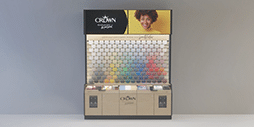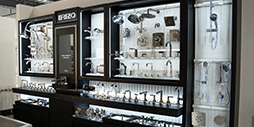COVID-19 has acted as an accelerant for pre-existing trends within many industries, including health and beauty. To paraphrase a recent quote from Zaffrin O’Sullivan – founder of Five Dot Botanics “those brands that aren’t thinking ‘what is my social impact’; ‘how do I fit into society’ – seem archaic and these brands existing in five years’ time seems like an impossibility.”
Demand for sustainable products and ethics are front and centre in the minds of leading retailers on the high street. Sustainability is the new expected norm for consumers, leaving a gaping need to adapt the retail environment and offering, in order to achieve these sustainable standards.
Many retailers are already starting to do this with their product lines. Procter & Gamble being a prime example with their new ‘blue beauty’ line Waterless, that launched in the US this January. This offers a range of solid shampoo and conditioning products. The originality of which coming not from the solid form, but from the fact that is does not require water to be activated. This is a huge step forward for the blue beauty movement, which WWD dubbed as the “next generation [of] clean beauty’’, especially in the US where worries around future demand outstripping supply are prevalent, particularly as it is the industry’s most used ingredient.
Water consumption is not the only sustainable concern, however. A more obvious consumer bugbear is non-recyclable packaging. There are hugely telling statistics about the way consumers feel about the use of virgin plastics and non-recyclables, with 73% of consumers believing brands have a responsibility to be more sustainable and 88% wanting brands to help them live more sustainably. Here at Outform we have recognised we have a part to play in moving towards a more sustainable future, which is why we are looking to move to 100% recycled packaging by the end of 2021, which means we will not be using tape, merely an interlocking cardboard design.
Packaging is however, only one small step for businesses. The real impact on the environment often comes from our overall carbon footprint. Many companies are starting to combat this. L’Oréal targeting carbon neutrality by 2025 and other brands like Tropic actually achieving a carbon negative status last year.
Consumers are also looking to reduce their carbon footprint and companies like Doconomy have introduced innovative products like their credit card, which cuts off spending when a monthly carbon limit, rather than a financial limit, is reached. These kinds of technologies could be adapted for in-store through the use of AR apps, to direct consumers to the most carbon friendly products (as an example). Still, brands will need to pay equal attention to creating sustainable business practises, as to providing solutions for their consumers.
Here at Outform we are heading out on a 3 year journey; the SO140001 programme to define our own sustainable processes to audit and evolve as part of our commitment to sustainability. We’re already using new software to measure carbon footprint, understand material choice and cost, manufacturing location and process, as well as looking at specific materials for packaging and delivery options (like our aforementioned sustainable packaging solutions). Our dream is that we are no longer simply talking about sustainability as an “end of life”, but building circularity into all of our designs. However, what is abundantly clear, is the need for an industry shift to a universal standard to ensure that sustainability and pricing become happy partners. We hope that sustainability will become the industry standard measure.
Want more industry news? Click here to sign up for our weekly newsletter and receive the latest news in tech, innovation, design and retail right in your inbox.


